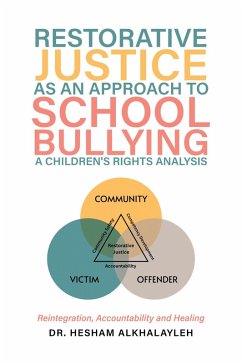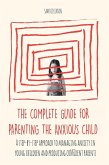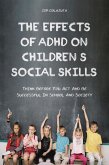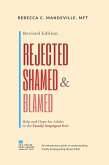Drawing on practical insights and real-world examples, the book demonstrates how restorative practices empower students to take responsibility for their actions while giving victims a voice in the process. Rather than isolating or stigmatizing those who cause harm, restorative justice seeks to reintegrate them into the school community through dialogue, empathy, and mutual understanding. This approach fosters meaningful accountability, where students acknowledge the impact of their behavior and actively work to repair the damage caused.
At its core, the book highlights how restorative justice creates opportunities for healing, not only for the individuals directly involved in bullying incidents but also for the wider school community. By building trust, promoting respect, and nurturing positive relationships, restorative practices contribute to safer, more inclusive, and supportive learning environments.
This work is both a guide and a call to action for educators, policymakers, and school leaders seeking alternatives to zero-tolerance policies. It makes a compelling case for adopting restorative justice as a proactive and sustainable strategy to address bullying and cultivate resilience in schools.
Dieser Download kann aus rechtlichen Gründen nur mit Rechnungsadresse in A, B, CY, CZ, D, DK, EW, E, FIN, F, GR, H, IRL, I, LT, L, LR, M, NL, PL, P, R, S, SLO, SK ausgeliefert werden.









